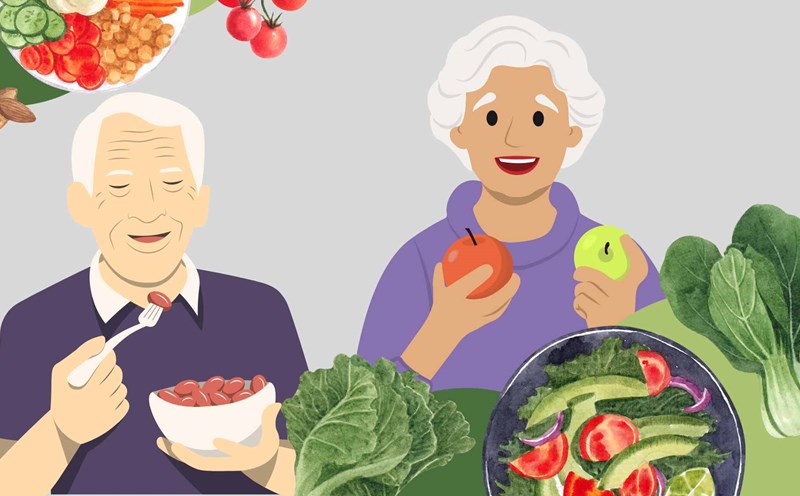Dark green leafy vegetables
Dark green leafy vegetables such as rainbow, spinach, and kale are rich in natural nitrates, which help activate the production of nitric oxide (NO) in the body.
NO is an important protein for heart health, dilating blood vessels, improving blood circulation and helping to maintain healthy blood pressure. Our NO production decreases with age, so regularly eating these green vegetables is one of the most effective ways to eat to combat that.
Berries
Berries are rich in flavonoids and polyphenols that help fight inflammation and oxidative stress. This is the main cause of cardiovascular disease. Berries also help improve endothelial function, support healthy blood circulation and regulate cholesterol.
Avocado
Avocado is a good source of potassium and heart-healthy monounsaturated fats. Both nutrients are beneficial for blood pressure and lipid balance.
The fiber content in avocados also helps control blood sugar, another important factor in long-term cardiovascular recovery and quality cardiovascular metabolic health.
Fatty fish
Mackerel, sardines and salmon are fatty fish that you should add to your diet. Omega-3 fatty acids in fatty fish are essential for reducing inflammation throughout the body and supporting heart rate, triglyceride levels and arteriosclerosis flexibility. Regular consumption of these fish has been linked to a reduced risk of cardiovascular events.
cruciferous vegetables
cruciferous vegetables such as broccoli and Brussels sprouts provide fiber and support the detoxification process. cruciferous vegetables help eliminate environmental toxins and metabolic waste that can put a burden on the cardiovascular system.
The antioxidant content in this vegetable also helps reduce oxidative stress. This is a common cause of vascular damage.











